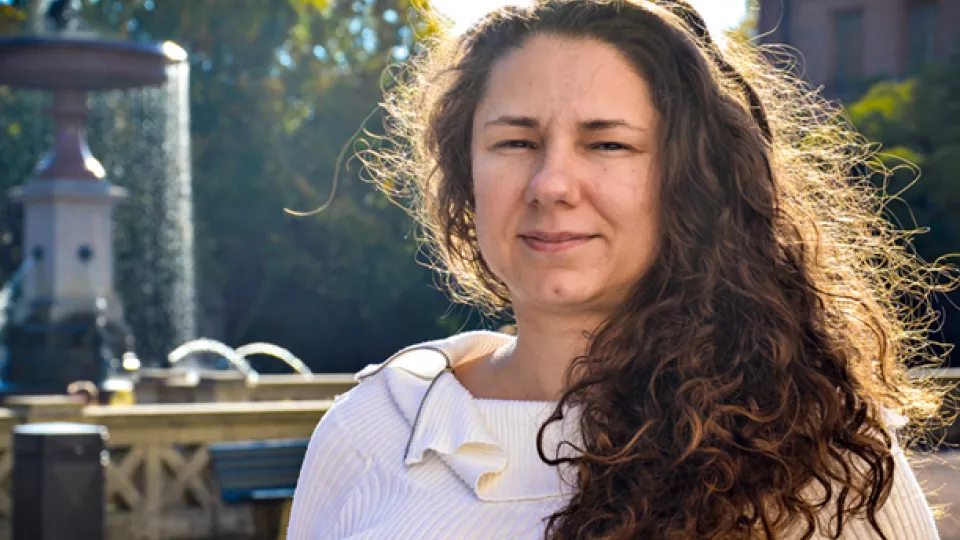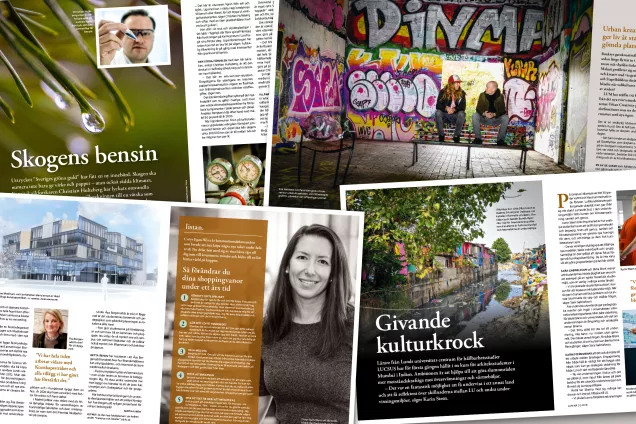More than 45 percent of responses from doctoral students in the poll state that their manager or supervisor did not support them by setting clear boundaries in regards to the content and scope of their work duties.
There are no statistics on how many doctoral students do not complete their studies on time at LU. On the whole, things have improved for doctoral students who, thanks to funded doctoral studentships, now have more secure finances. Demands on the scope of theses have also been reduced. However, the timeframes have been tightened – those who are yet to complete after four years, or a maximum of five, are met with complications. Aleksandra Popovic is one of them – and she’s asking for increased support with the structure of the research degree.
“The supervisors are the ones who know how a good research degree should be structured, not the student embarking on the degree for the first time”, she says.
She says the individual study plan needs to be realistic, and the supervisors need to be more actively involved in the study plan to avoid it containing too much – if the thesis work isn’t moving forward at an adequate pace, other things should be eliminated.
“Doctoral students are often encouraged by senior researchers to aim for the stars, the sky is the limit. So the doctoral student may have done a lot, going to seminars, taking part in conferences, writing other things – without even coming close to finishing their thesis in time”, says Aleksandra Popovic.
Among the “timed-out” doctoral students she meets, many feel alone and ill-prepared for how to handle the situation – emotionally and economically.
“It felt hard looking for work outside the University, how could I explain the gap in my CV? It was emotionally difficult. I’d dedicated so much thought and time but didn’t have anything to show an employer”, she says, adding that her self-confidence had hit rock-bottom.
The doctoral studies do not make you eligible for unemployment benefits, so once the doctoral studentship is over, the pressure is on to make a living. In her case, Aleksandra Popovic was offered work as Doctoral Student Ombudsman and started working full-time in the position. Which students finish in time is directly related to whether or not they do a lot of independent work.
“It’s become apparent that finishing in time is most difficult for those who are not part of a larger research project”, she says.
Doctoral students who do not finish are also a setback for departments as they are not paid for doctoral students until they complete their degree. Aleksandra Popovic returns to the individual study plan which is to be followed up each year.
“Current follow-up appraisals often only assess the doctoral student’s efficiency. This is where the supervisors should go in and assist with the structuring of the studies, for example, when should the student attend seminars? What is or isn’t there time for?” says Aleksandra Popovic.
She says that, since the University is responsible for the quality of the research studies, the University must specify what supervision should entail, this is currently not explicit. Even though there are clearly many talented supervisors at LU, there is currently significant room for them to interpret their task in different ways, explains Aleksandra Popovic.
“The doctoral student’s research is often confused with the student’s studies and supervisors neglect their responsibility to provide support in the writing process, which the doctoral student needs to finish in time.”



